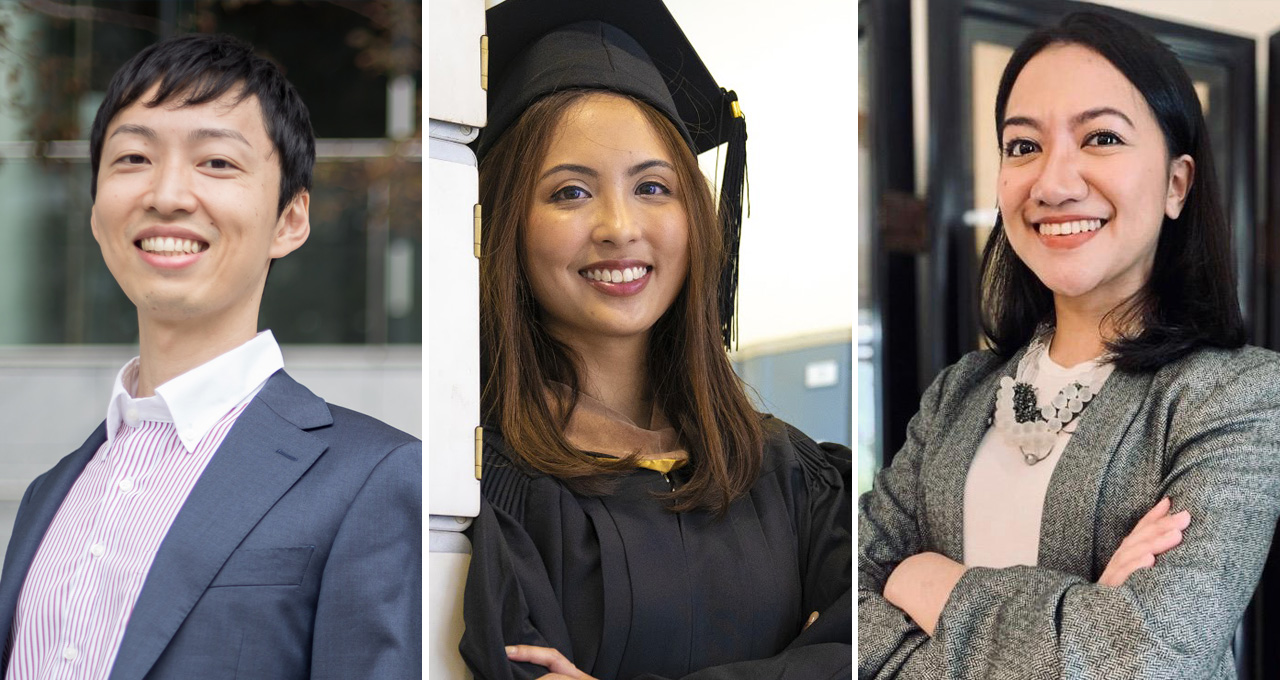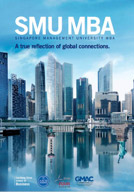
It’s no secret that ratings websites are wildly popular with the Internet generation. They distill information into digestible chunks, and highlight the attributes of a hotel, restaurant or just about any kind of business to a consumer at a glance.
However, unlike decisions such as finding a spot for dinner or the best spa for a massage, the journey towards picking the right business school is exponentially more convoluted and at times, mind-boggling.
Enter the world of business school rankings, which seek to simplify the decision-making process, but may not be as straightforward as they seem. Deviating in terms of methodology and criteria, rankings may greatly differ from one list to the next — adding to an already arduous process of sifting through multiple options.
As such, while business school rankings may serve as a starting point in the initial shortlisting process, a highly ranked programme may not necessarily be synonymous with being the right fit for you.
We spoke to three Singapore Management University Lee Kong Chian School of Business (SMU LKCSB) alumni - Deborah Hendricks (Business Manager at LGT Bank), Ryota Ozawa (Senior Manager, CPA at Nishii Certified Public Accounting Firm) and Bianca Octavia (Senior Manager – Special Projects Lead for Gojek Indonesia) - about other considerations when they were deciding where to pursue their postgraduate studies:
PRESTIGE ISN'T EVERYTHING
Rankings are based on an aggregate of survey responses and other data. So unless this ‘average’ consensus reflects what you hope to gain from your business school experience, they may not be all that useful. Therefore, the first thing to consider is why you are seeking a business school education in the first place.
A highly ranked school may be more important when searching for a new employer, due to its favourable appearance on your resume. However, other criteria such as developing nuanced insights to your work, or building a regional network consisting of influential leaders in the industry during your education might be more important for those seeking career progression.
As Bianca explains: “I have been following news on the rise of Asian business schools and the success rates and general profiles of their graduates, which led me to focus on other factors I consider more important than rankings.”
Another important factor to consider is the format of the programme. If you intend to keep working while you are studying, you will probably want to opt for a part-time or blended programme. If so, it will be important to note that most published rankings are only awarded based on full-time programmes, so they might not be the best measure of programmes delivered in other formats.
While Deborah was advised by senior managers to attend a top-ranking school, she says that the choice “really depends on what you want to achieve out of an MBA – it's really not a one-size-fits-all approach.”
“Everyone has their own needs and we should approach them uniquely, ranking is not everything to me” adds Deborah.
GEOGRAPHY MATTERS
For those who hope to continue working while pursuing a business school education, studying abroad may not be a viable option.
As Deborah recalls, “I did shop around for other courses but I had many reservations, including that many demanded a full time commitment. The time away from the workforce means you have to leave your job”. She is also a fan of SMU’s location in Singapore’s Central Business District as that helped her save on time spent commuting
“Most of the firms in my industry are located in City Hall and Raffles Place vicinity” says Deborah.
“I've had colleagues who had to commute to the west and the far west to attend class and had to leave the office at 5pm. This was not an issue for me when I chose SMU.”
In addition to balancing job commitments with a business programme, another consideration may be your preferred region for work after graduation.
“One of my goals was to work in Asia, and going to an Asian business school would ease me into achieving that goal” says Bianca.
For example, while some US colleges possess a longer history and dominate traditional business school rankings, moving to the United States solely for education may not make much economic sense otherwise.
“You should participate in a programme in the geographic location that you wish to be hired in” adds Deborah.
“Most of the top-ranked schools are in the US, and take two years (think of the opportunity cost!) to complete at an astronomical price. Hence, such programmes would make more sense for someone wishing to relocate to the US.”
THE RIGHT LEARNING ENVIRONMENT
Sure, a highly-ranked school look impressive on a resume, but does it fit your learning style and requirements?
“One of the things that impressed me most about SMU is the pedagogy and teaching method” says Bianca.
“A collaborative learning experience is enforced in the programme. Another aspect that stood out was the profile of the case studies used in the classes, which ranged from cases about global companies to Asian companies and businesses.”
One of the key reasons Ryota chose SMU was: “to have active discussions among diverse people in a small class setting… SMU had classes of 30 - 40 students and smaller class-sizes were beneficial for learning.”
As such, he was able to forge deeper relationships with his classmates, which helped him meet his goal of connecting with fellow Asian talents and leaders.
Deborah also points to the global class profile at SMU, “I learnt a lot from them, there is also a good mix of international students so your view is not solely Asian-focused.”
It is also important to consider the curriculum when making your decision. For example, Ryota sought a programme to expand his knowledge and skills beyond accounting and finance to cover wider aspects of running a business, such as marketing and leadership.
Meanwhile, Bianca highlights how the opportunity to intern at a prestigious consulting firm helped her gain exposure to high profile projects and deepen her knowledge base and professional experience.
With the business landscape constantly disrupted by technological advancements and global upheavals, business education should also be designed to shape tech-savvy leaders.
“Besides the core modules, the programme is constantly reviewed to ensure its relevance,” adds Deborah. “More digital-related modules, for example, were added due to the increasing influence of technology in business.”
A crucial part of the learning environment is not solely the subjects that are studied, but also the people you learn from. Ryota says that one of the key reasons for choosing SMU was that “it has headhunted truly competent professors from all over the world to share the latest and most reliable business theory and practical experience with students”. Similarly, Deborah added, “the professors and lecturers are also from the industry, so all the lessons were engaging and very relevant for us”.
BUILDING A PERSONAL BRAND
Beyond being a recognisable brand name in itself, a good business school should also boost the value of its graduates.
“I felt that the SMU MBA would equip me with the skills to be effective in my preferred career space,” says Deborah, “and I was right. I received a few offers immediately after graduation, with the right doors being opened to me. My studies at SMU equipped me with the knowledge to market myself and to approach business problems with holistic lenses.”
“Many companies in Singapore frequently conduct campus recruitments in their search for MBA candidates which is how I landed my post-MBA employment. SMU has great connections with prominent companies and I experienced the benefit of this first-hand” says Bianca.
PLUS: Insider advice from SMU alumni
Our three alumni provide practical advice in helping you make the optimal decision:
- Begin the shortlisting of schools and application preparation at least a year in advance, especially if you are still working.
- Set clear priorities. Understand and rank your needs and your constraints first. Then evaluate which school allows you to extract the best return on your investment
- Don’t just think about the academics, exposure and networking but also the non-academic stuff such as volunteer work, clubs and interest groups.
- Do your research. Try to find information sessions that are available in your city for the schools on your list and find alumni of the school and reach out to them if possible, to ask about their experiences
- Once you have made a decision, stick to it and don’t look back and second-guess your decision.
Speak to our Admissions Advisors
Singapore Management University
Lee Kong Chian School of Business
Graduate Programmes Office, Level 4
50 Stamford Road, Singapore 178899
Tel: +65 6828 0882
Join us at the upcoming events
Via Gerolamo Cardano, 1, 20124 Milano MI, Italy
1 Raffles Drive, Makati Avenue, 1224, Makati City
Bayerstraße 41, 80335 München, Germany
You may also be interested in
Executive Master of Business Administration (EMBA)
